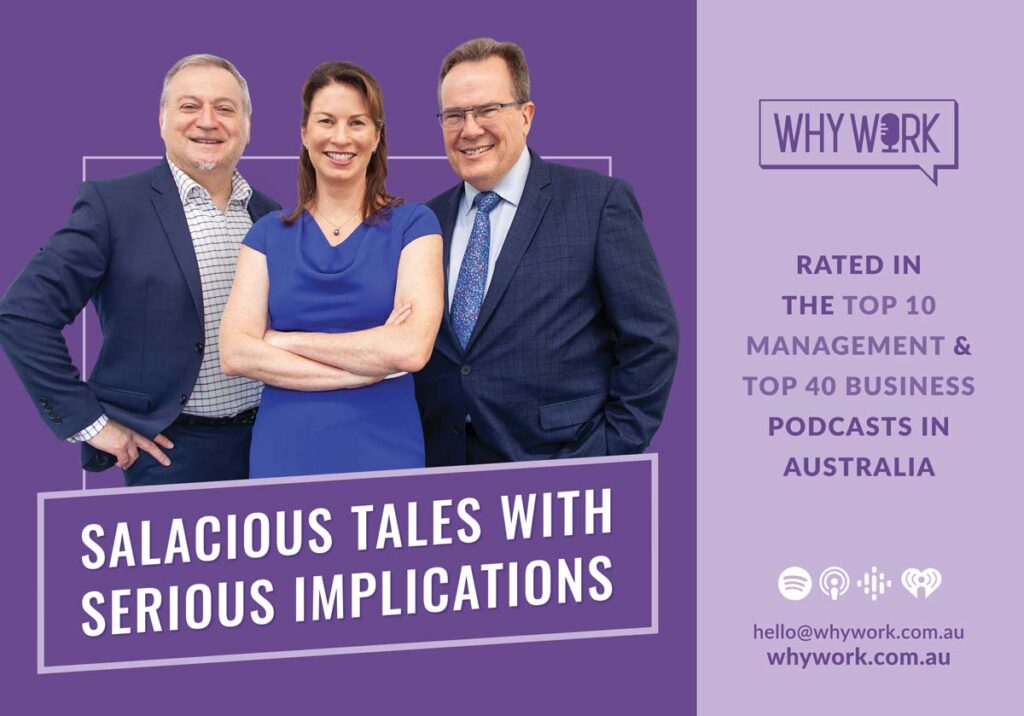The WhyWork podcast is a legal dissection of workplace events that is laced with humour. The hosts explore the contemporary and uncomfortable realities of work by dismantling case law, then prompt listeners to consider how to redesign the world of work for health, productivity, and sustainability.
The team from Australia is:
- Dr Trajce Cvetkovski, senior lecturer, barrister, and a former state WHS Principal Legal Officer (prosecutions)
- Alan Girle, an esteemed work health safety lawyer
- Dr Sara Pazell, a work design strategist and certified professional ergonomist.
Few organisations bring the discipline of design to their work strategy in a cogent, integrated way and this is challenged by the show’s dissection of case law. The legal experts make courtroom decisions accessible and interesting while the human factors specialist advocates for the discipline of design at work.

The purpose is to disrupt conventional work practices that may try to distill complex phenomena by managing hazard and energy sources versus contextualising the human performance needs, applying a discipline of design (like service design and user experience), to address real-world business problems and to meet societal values, like sustainability or health.
The show challenges staid work practices, and the stories it covers inspire healthful aspirational design strategies, like salutogenic (health promoting) architecture, social inclusion with design for diversity, or mental health strategies that are evidence-based. Anyone involved in or affected by organisational strategy may be keen on listening, especially those who must decide on or are affected by work health and safety. The podcasters describe universal problems such as ‘work-from-anywhere’, the gig economy, or emerging technologies. Debate occurs by adopting the proverbial hat of many users in a system. The podcasters discuss the use of empathy maps, personas, modelling, simulation and other tools that can be used in work design strategy. They discuss candour and consultation, and design for diversity by inviting the voice of otherwise marginalised populations that are affected by management decisions. Many safety-related or business podcasters are more careful about what is presented and invite guests to speak on a subject matter of some expertise. In contrast, in this show, the podcasters draw on their wealth of experience, education, skill and know-how, and present it like a talk-show radio production.
They expand conventional safety conversations to one that embraces whole-of-organisation, whole-of-industry, systems of governance and regulation, and societal impacts. The show began organically, through conversation and laughter among the podcasters who met over coffee and discovered more about each other’s talents and backgrounds. The original music is by Trajce Cvetkovski and the show is a volunteer production. Through business social media and free video conferences, work experiences of subscribers have been sought to consider whether ongoing research or debate on a topic is warranted. Workshops have been requested by local government entities. It’s free to listen to and free of advertising. Each season, the show advocates for contributions to a new charity.
The show is sponsored by ViVA health at work and supported by the Australian Catholic University. It’s available through recognised media,
including Apple and Google Podcasts, Spotify, iHeart Radio, Pandora, Tune In, RSS, Stitcher, Deezer, Amazon Music, Podcast Index, Samsung Podcasts, and Listen Notes.
The audio podcast is the primary vehicle of communication but print material is available with transcripts of the key points as ‘WhyNots’ (in audio and print form), and video conferences are scheduled each season. A book is planned to encompass the full transcripts of the episodes with case law citation and reflections by the authors. The content forms a library of resources for those in need of free work design and health educational material. Listen here.
A variation to that published in The Ergonomist June 2023. Click here to read.
